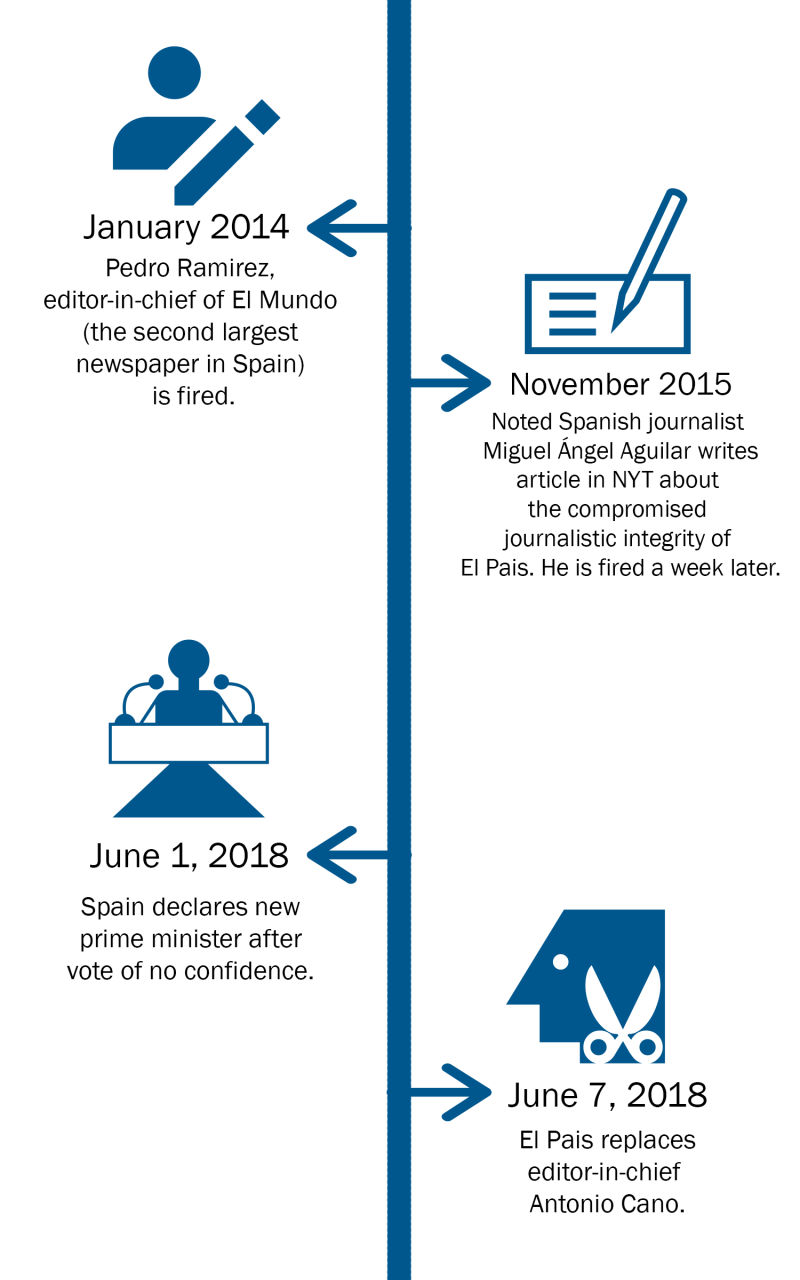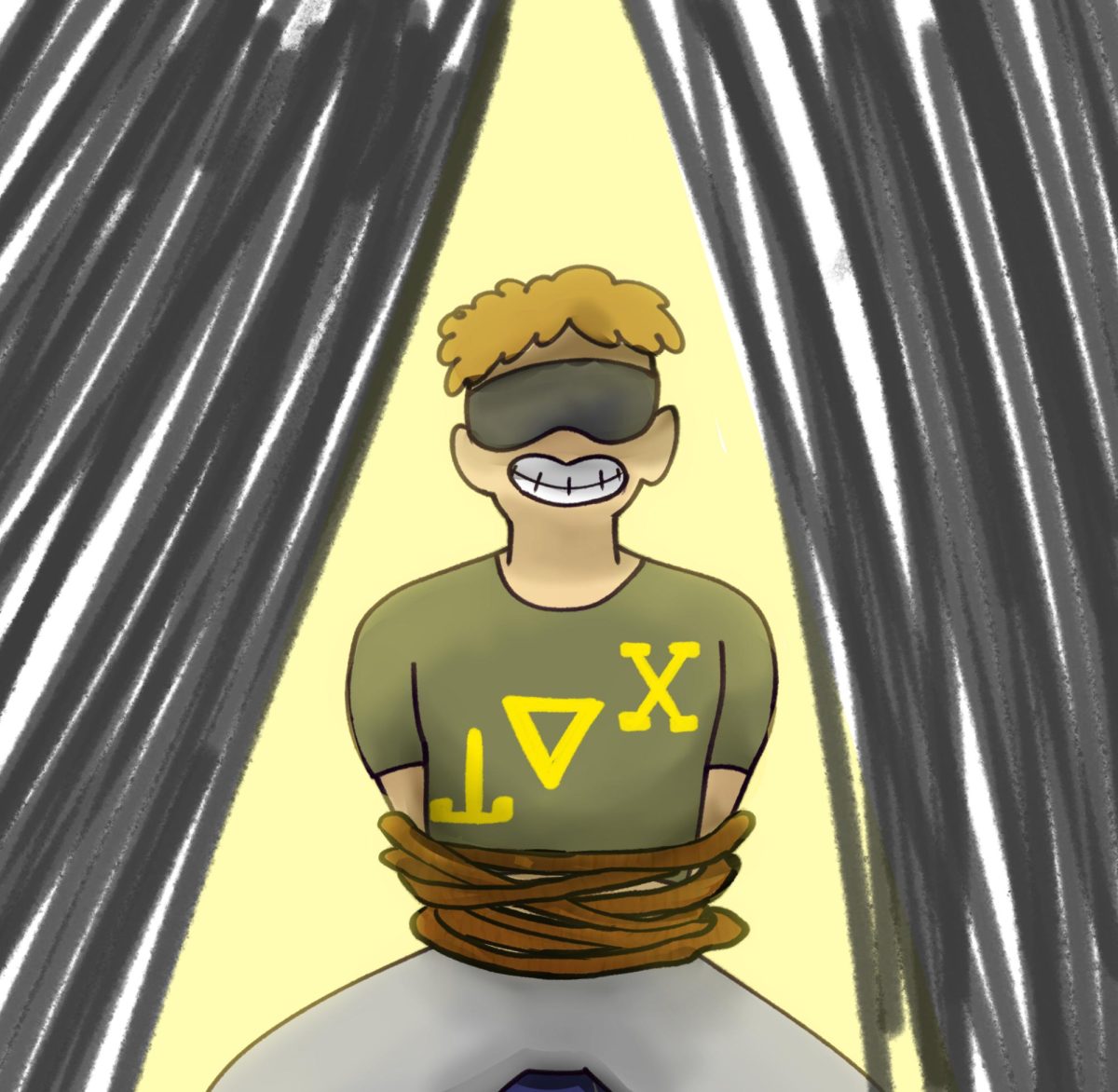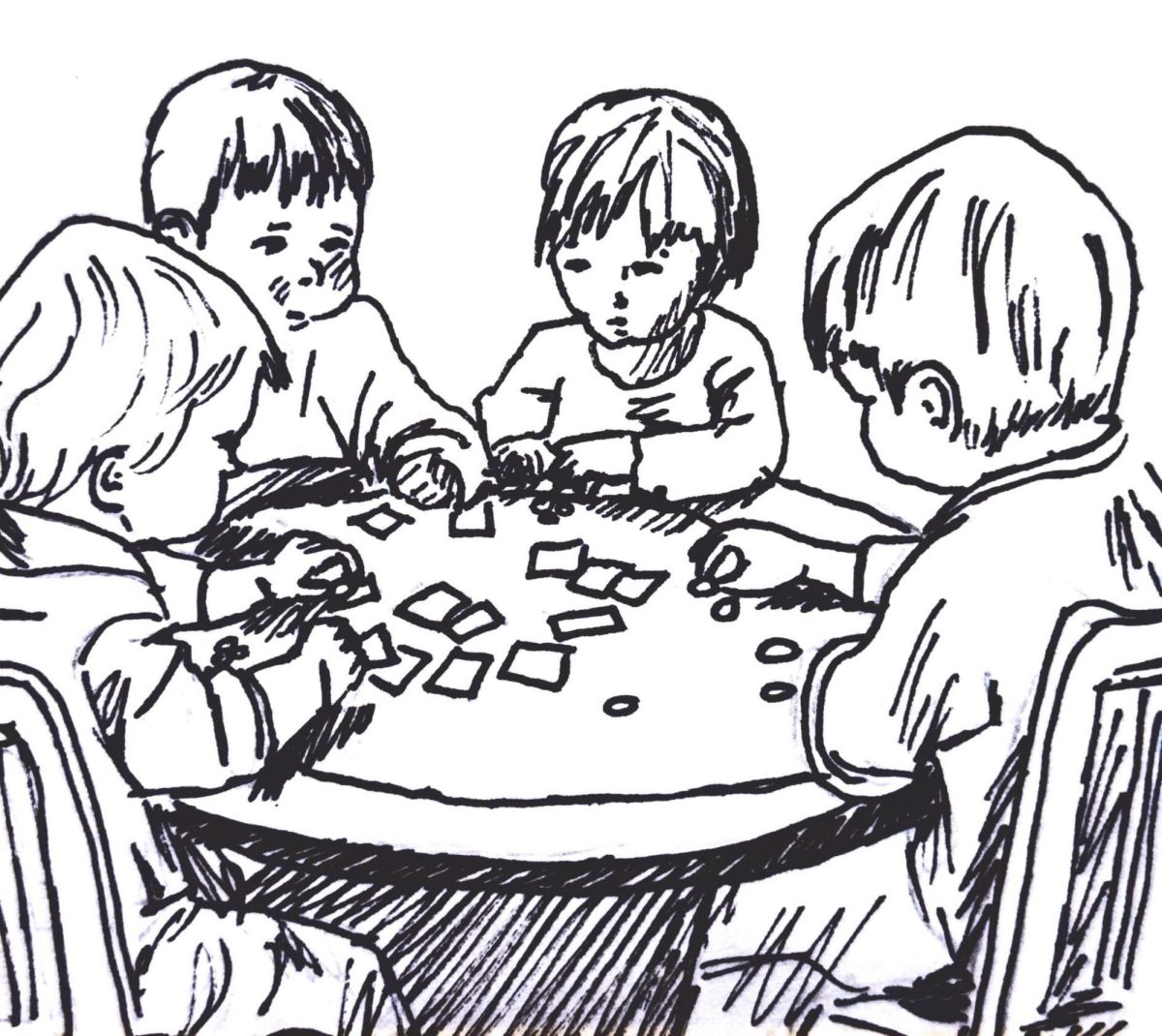Spain had a very tumultuous summer, starting with a very sudden change in government. With this new government came a new prime minister, Parliament and policies. However, it also came with a very quiet, yet sudden, change in editorial leadership of the country’s most popular newspaper. That’s suspicious.
Over the course of one week in June, Spain’s Parliament determined the Popular Party (Spain’s party in power) had committed fraud. Parliament then decided to hold a vote of no confidence and later unceremoniously deposed Prime Minister Mariano Rajoy. While the U.S. takes months of preparation to change leadership, Spain completely and peacefully transferred power from the Popular Party to the Socialist Worker’s Party and handed the mantle of prime minister over to Pedro Sanchez. Nobody got hurt and the country is still running like it was before.
And yet, not all is right in the world. June 1, Spain announced the vote of no confidence and the change in government. June 7, leading Spanish newspaper El Pais quietly retired their editor-in-chief.
Antonio Cano was the editor-in-chief of El Pais since 2014, and had held the position a mere month before the then-king of Spain, Juan Carlos, abdicated the throne due to fraud. What great timing.
And exactly one week after the change in government, El Pais once again changes their leadership, replacing Cano with Soledad Gallego-Diaz — a very experienced, trusted journalist. Where Cano had experience covering Latin American and U.S. politics on top of Spanish news, Gallego-Diaz has years of experience covering Spanish politics alongside European issues. Overall, she’s very qualified, and I’m excited to see some female leadership in Spain’s patriarchal society.
However, this is suspicious and should be cause for worry. Rumors that El Pais has fired journalists for their criticisms of the government have circulated extensively. In 2015, the rumors became reality when El Pais severed ties with The New York Times for publishing an article that quoted Miguel Ángel Aguilar, a veteran political journalist from Spain. Aguilar had insinuated that El Pais was censoring its content due to economic strain and fear of losing corporate sponsors. Shortly after, Aguilar suggested that his long-standing column with El Pais was abruptly terminated due to this comment.
In 2018, this subtle change in leadership in El Pais executive staff seems to be an insurance that they keep the newspaper’s slant in the right direction. Which then begs the question: Who’s really running the show?
Spain is simply one example of the precarious situation that news outlets face today. In countries that have dictators — whether the dictatorship is overt or not — the situation is much worst. Though these instances may seem distant, we must still be aware and alarmed by situations where, in democratic nations, the news isn’t run by the governed people. If the governors have the power to feed whatever messages they think best to the governed, we lose our most basic human right in a democracy.
Journalism is powerful, and the people need to be the ones who take control of it. Our government was created to be kept in check, and journalists are our first defense. So pay attention next time the news is on, and take a stand when our journalists are forced to publish an agenda. “Fake news” shouldn’t be a term thrown around lightly and the professionals responsible for getting you, the public, the “real news” are journalists.






